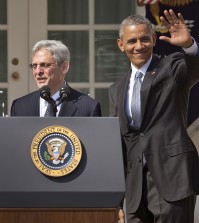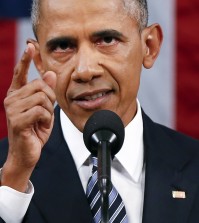- California Assembly OKs highest minimum wage in nation
- S. Korea unveils first graphic cigarette warnings
- US joins with South Korea, Japan in bid to deter North Korea
- LPGA golfer Chun In-gee finally back in action
- S. Korea won’t be top seed in final World Cup qualification round
- US men’s soccer misses 2nd straight Olympics
- US back on track in qualifying with 4-0 win over Guatemala
- High-intensity workout injuries spawn cottage industry
- CDC expands range of Zika mosquitoes into parts of Northeast
- Who knew? ‘The Walking Dead’ is helping families connect
Former Defense Secretary Gates creates controversy with new book (UPDATED)
Says late Korean President Roh was “Anti-American and a little bit crazy”
In contrast, praised MB for being “Very Pro-American”
Also reveals that Korea was close to war in 2010

The book entitled: “Duty: Memoirs of a Secretary of War,” by former Defense Secretary Robert Gates is seen in Washington, Wednesday, Jan. 8, 2014. The White House is bristling over former Defense Secretary Robert Gates’ new memoir accusing President Barack Obama of showing too little enthusiasm for the U.S. war mission in Afghanistan and sharply criticizing Vice President Joe Biden’s foreign policy instincts. (AP Photo/Jacquelyn Martin)
By Kang Seung-woo
South and North Korea were about to engage in a full-fledged military conflict in November 2010 following Pyongyang’s shelling of Yeonpyeong Island, according to a memoir by former U.S. Defense Secretary Robert Gates.
On Nov. 23 2010, North Korean artillery batteries bombarded the border island in the Yellow Sea, killing four people, including two civilians.
The newly published tell-all book said that South Korea’s restraint had reached its limit as the artillery barrage followed the sinking of the South’s naval ship Cheonan by a torpedo from a North Korean submarine eighth months earlier. The sinking claimed the lives of 46 sailors.
“South Korea’s original plans for retaliation were, we thought, disproportionately aggressive, involving both aircraft and artillery,” he said in the memoir, titled “DUTY,” calling the situation a “very dangerous crisis.”
“We were worried the exchanges could escalate dangerously.”
Top-level U.S. government officials including President Barack Obama and then Secretary of State Hillary Clinton made numerous phone calls to their South Korean counterparts in order to quell talk of retaliation, Gates said.
“Ultimately, South Korea simply returned artillery fire on the location of the North Koreans’ batteries that had started the whole affair,” he said.
He also said China, North Korea’s lone ally, strived to ease tensions on the Korean peninsula. “There was evidence the Chinese were also weighing in with the North’s leaders to wind down the situation,” Gates said.
The book, which is creating a stir across the Pacific as well as in the United States, described South Korea’s late former President Roh Moo-hyun as “a little crazy.”
In the 600-page-plus book, Gates, who served for George Bush and Obama from 2006 to 2011, called the liberal-minded South Korean president “anti-American and probably a little crazy.”
The memoir said Gates met Roh in Seoul in November 2007 and quoted the former president as saying “the biggest security threats in Asia were the United States and Japan.”
The book has already become sensational in the U.S. thanks to Gates’ criticism of Obama’s handling of the Afghanistan war, accusing his former boss of an “absence of passion.”
In contrast, the former Pentagon chief spoke well of Roh’s successor, Lee Myung-bak. “I really liked Lee: he was tough-minded, realistic and very pro-American,” he said.
















